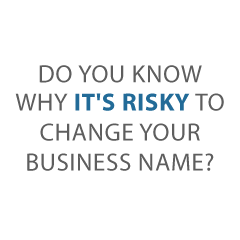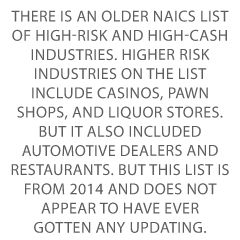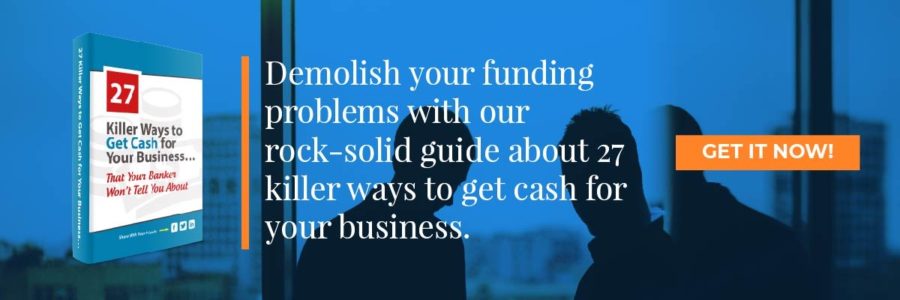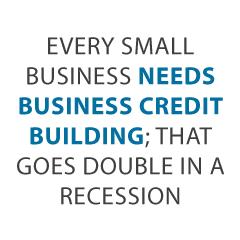Are you feeling inspired to change the name of your business? It’s understandable. Sometimes something just strikes you as perfect and you feel you need to take action right away. However, you might want to hold off on that for a minute. Don’t change your business name until you understand how risky it is.
STOP! Don’t Change Your Business Name Until You Read This
Even if the name of your business is super boring right now and you have an idea for the catchiest name ever, it is a big risk to change your business name. The name of your business is incredibly far reaching. It is on all insurances, licenses, bank accounts, credit accounts, and it is tied to your EIN if you have one.
Imagine, every legal document and identification number that relates to your business has your business name on it. Furthermore, if you have a web presence, your social media accounts and website connect to that name. If your URL has your business name in it, that complicates things even further.
Learn more here and get started with building business credit with your company’s EIN and not your SSN.
Why You Can’t Just Change It Everywhere
Of course, you’re thinking you’ll just change it in all the places and you’ll be good. That’s great, but what if you forget something random from a long time ago? What if your business name is on a document you forgot even exists? You may not think it matters much, but it does. Your business name can affect almost every aspect of fundability. Do you know why it’s risky to change your business name? Understanding exactly what fundability is and what affects it can go a long way toward helping you understand.
What is Fundability
Fundability is the ability of your business to get funding. When lenders look at funding your business, they consider if it is a good idea to make the loan. What do they look at to make that determination? It’s a lot more than you may think, and I guarantee that it reaches further than you realize.
The first aspects of fundability have to do with how your business is set up.
Consistent, Separate Contact Information
This is your business phone number and address that is separate from your personal phone number and address. That may not mean you have a separate phone line, or even a separate location however.
Honestly, you can get a business phone number and fax number pretty easily that will work over the internet instead of phone lines. Then, the phone number will forward to any phone you want it too so you can simply use your personal cell phone or landline. Whenever someone calls your business number it will ring straight to you.
You can use a virtual office for a separate business address. This isn’t what you may think. A virtual office is a business that offers a physical address for a fee, and sometimes they even offer mail service and live receptionist services. In addition, there are some that offer meeting spaces for those times you may need to meet a client or customer in person.
But imagine if your phone number and address are listed under one name, and then you change the business name. It is complex and time consuming to change your information everywhere. Something is almost certain to get missed, and customers are going to be confused.
EIN
This is an identifying number for your business that works in a way similar to how your SSN works for you personally. You can get one for free from the IRS. However, if you change your business name, you’ll have to make sure you have an EIN that is attached to the new name. Furthermore, you’ll have to ensure all the accounts that you have using that EIN are changed to reflect your new name.
Incorporate
Incorporating your business as an LLC, S-corp, or corporation is necessary to fundability. It lends credence to your business as one that is legitimate. It also offers some protection from liability.
Which option you choose does not matter as much for fundability as it does for your budget and needs for liability protection. It’s best to talk to your attorney or a tax professional about that issue. However, when you incorporate you are going to lose the time in business that you already have. You essentially become a new entity. Basically, you have to start over. You’ll even lose any positive payment history you may have accumulated.
This is why it is important to incorporate as soon as possible. Is necessary for fundability and for building business credit, but so is time in business. The longer you have been in business the more fundable you appear to be in the eyes of lenders. That starts on the date of incorporation, regardless of when you actually started doing business.
If you want to change your business name and you are not yet incorporated, then when you do incorporate is the best time to make it happen. Do it sooner rather than later.
Business Bank Account
You should already have a separate bank account for your business transactions. If you don’t, you need to make that happen now. There are a few reasons for this. First, it will help you keep track of business finances. It will also help you keep them separate from personal finances for tax purposes.
There’s more to it however. There are several types of funding you cannot get without a business bank account. Many lenders and credit cards want to see one with a minimum average balance. In addition, you cannot get a merchant account without a business account at a bank. That means, you cannot take credit card payments. Studies show consumers tend to spend more when they can pay by credit card.
Now, here is how your business name, and the risk when you change your business name, comes into play. This account has to be in your business name. If you change that name, you’ll have to go through the hassle of changing the name on that account. Not only that, but if you have any drafts coming out, you will have to make sure information is updated with those accounts. Otherwise, you could end up with unpaid bills.
Licenses
For a business to be legitimate it has to have all of the necessary licenses it needs to run. If it doesn’t, warning signals are going blare. Do you know what else will set off some major red flags? If your business name and the name on your license do not match.
Business Website
I am sure you are wondering how a business website can affect your ability to get funding. Think about it. These days, if you don’t have a website you may as well not even exist. Yet, having a poorly put together website can be even worse. It is the first impression you make on many, and if it appears to be unprofessional or confusing it will not bode well for you with consumers or potential lenders.
Spending the time and money necessary to ensure your website is professionally designed and works well is vital. Paying for hosting is important too. Don’t use a free hosting service. Also, your business needs a dedicated business email address. It should have the same URL as your Website.
Now, imagine your URL and email are tied to your business name. If you change that, you have to redesign your whole site to reflect the new name. Changing those things takes time and money. That’s not even to mention how confused people will be when they do an internet search for your business using a different name, or when they get to your website and see a name they aren’t expecting.
Learn more here and get started with building business credit with your company’s EIN and not your SSN.
Business Credit Reports
These are reports, like your personal credit reports, that detail the credit history of your business. It is a tool to help lenders determine how credit worthy your business is.
Where do business credit reports come from? There are a lot of different places, but the main ones are Dun & Bradstreet, Experian, Equifax, and FICO SBSS.
Lenders see this report. They rely on it heavily when it comes to making lending decisions. Even if your business credit is stellar, seeing your business listed under a bunch of different names can cause a problem. They start worrying about things like fraud, and that can cause an automatic denial.
Even worse, if things aren’t taken care of properly, you could end up with accounts reporting to two different credit reports, wrong accounts on wrong reports, or some other confusing credit report fiasco simply from choosing to change your business name.
Other Business Data Agencies
In addition to the business credit reporting agencies that directly calculate and issue credit reports, there are other business data agencies that affect those reports indirectly. Two examples of this are LexisNexis and The Small Business Finance Exchange. These two agencies gather data from a variety of sources, including public records. This means they could even have access to information relating to automobile accidents and liens. While you may not be able to access or change the data the agencies have on your business, you can ensure that any new information they receive is positive. Enough positive information can help counteract any negative information from the past.
The same issues apply. If your business name doesn’t match across the board, lenders could get uncomfortable.
Identification Numbers
In addition to the EIN, there are identifying numbers that go along with your business credit reports. Some of them are simply assigned by the agency, like the Experian BIN. Some, like a D-U-N-S number, you have to apply for, of course using your business name.
Here’s another place where you have to follow through if you change your business name. You have to make sure your new name isconnected to your old D&B number, or get a new number. It can become very complicated.
Then other numbers, like your BIN from Experian, will need to be updated as well.
Business Credit History
Your credit history has everything to do with everything related to your credit score, which is a huge factor in the fundability of your business.
Your credit history consists of a number of things including:
- How many accounts are reporting payments?
- How long have you had each account?
- What type of accounts are they?
- How much credit are you using on each account versus how much is available?
- Are you making your payments on these accounts consistently on-time?
Learn more here and get started with building business credit with your company’s EIN and not your SSN.
The more accounts you have reporting on-time payments, the stronger your credit score will be. I’ve already touched on this above. When you change your business name, this information can become very confusing unless you handle things very carefully. The less confusing things are for lenders, the better.
Is it Really that Risky to Change Your Business Name? Yes!
When you change your business name, you start a sort of domino effect. The problem is, the dominos weave in and out of a spider web formation that reaches further than you can probably imagine. If just one is out of place the whole thing can fall. Lenders hone in on discrepancies, and sometimes the result is simply denial. No questions asked, they just deny the loan based on too many inconsistencies.
The only really good time to change your business name is when you incorporate. Still, even then it is best not to. Consistency is key, and trying to backtrack and make changes everywhere they need to be made costs time and money. Trying to explain gaps and changes on a report and how everything ties together is even riskier. The more complicated things are, and the harder a lender has to work to see that you are fundable, the less likely approval becomes.
To make a long story short, you need to carefully weigh any benefit you think you may gain from changing your business name against all the costs. While there could be a few very specific situations where this isn’t the case, as a general rule the benefit doesn’t outweigh the cost.
The post Why It’s Risky to Change Your Business Name appeared first on Credit Suite.








